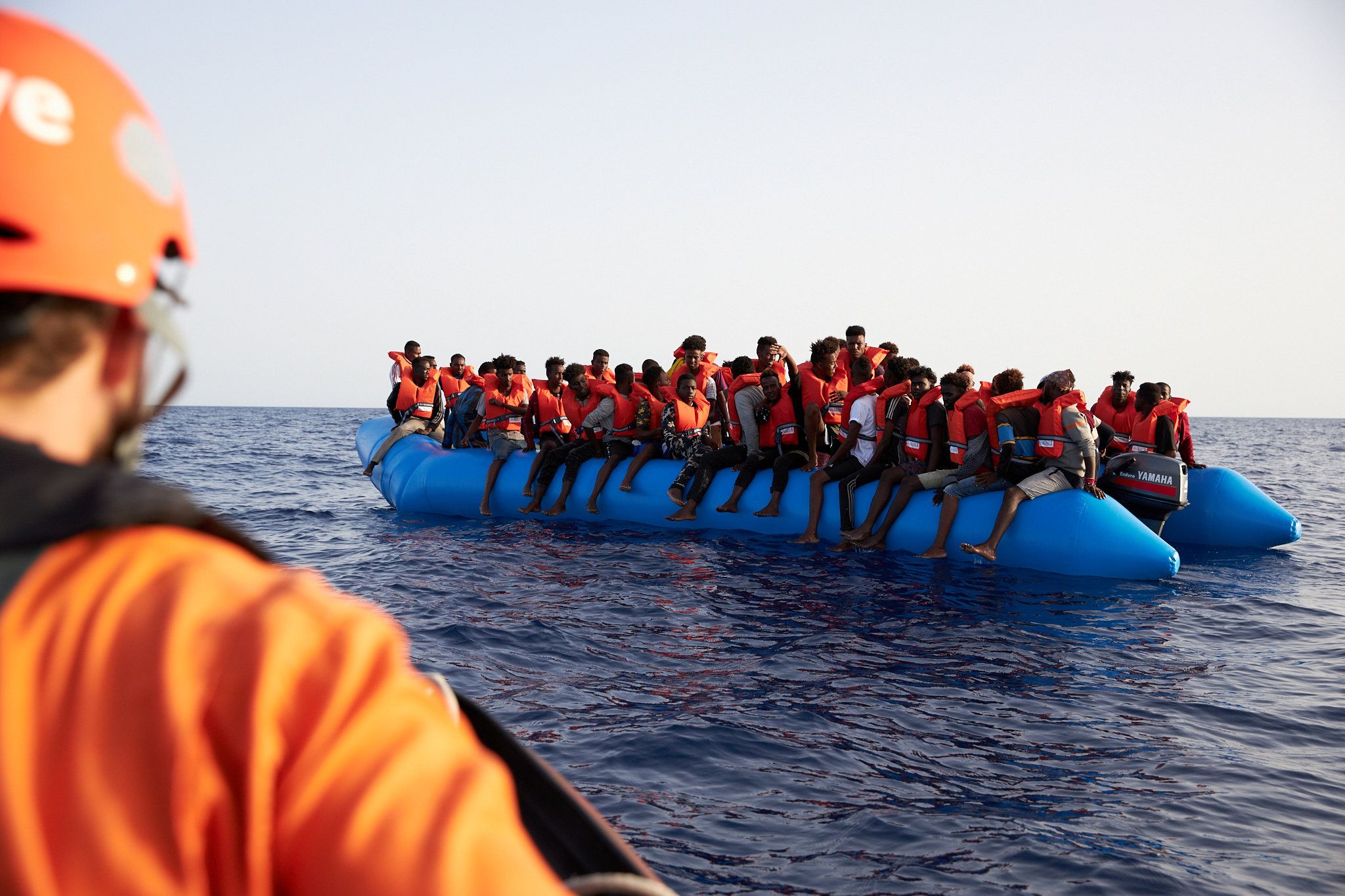What We Are Watching: New EU Migrant Plan, A Governor on the Ropes, Trump’s Kashmir Curveball
A new EU plan for refugees – French President Emmanuel Macron said yesterday that 14 EU countries now back a new plan for handling refugees rescued from the Mediterranean Sea. Details of the plan are vague, but at least one important country is not on board: Italy, where right-wing interior minister Mateo Salvini has chased away rescue boats and accused other member states of turning his country, often the first landing point for migrants from Africa, into "the refugee camp of Europe." Differences of opinion across the EU have hampered efforts to hammer out an effective union-wide migrant policy. That hasn't stopped people fleeing dire conditions in Africa and the Middle East: at last count, nearly 32,400 migrants had arrived in Europe via the Mediterranean since January.
Ricky on the Ropes – Puerto Rico's embattled governor Ricardo "Ricky" Rossello says he'll step down after his term ends next year but not before then. He's even willing, he says, to face impeachment – but he won't resign. That won't play well with the hundreds of thousands of protestors now demanding his ouster over unpopular austerity policies, a corruption scandal, the botched response to Hurricane Maria, and a recent leak of Rossello's vulgar and offensive chat messages. Can Ricky really ride this out, hoping that the protesters lose momentum in the summer heat? Or will he succumb to popular pressure, opening up a broader contest for power and potentially reopening basic questions about the relationship between Puerto Rico and Washington?
Claims on Kashmir –Kashmir is a territory claimed by both India and Pakistan. Sporadic fighting over it has killed tens of thousands over the past three decades. On Monday, President Donald Trump told visiting Pakistani Prime Minister Imran Khan that Indian Prime Minister Narendra Modi had asked the US president to mediate this dispute. Khan was no doubt surprised and delighted: international mediation on Kashmir is a long-standing Pakistani goal. Not so for India, which continues to insist that Kashmir's status can be decided only by direct talks between India and Pakistan. Enraged opposition lawmakers in India have demanded that Modi explain himself. India's foreign ministry responded that "no such request [of Trump] has been made." We're watching to see what Modi himself will say.
What we are ignoring:
Rumors about dead strongmen – It's been a busy week on the are-they-dead-or-aren't-they front. First came the rumors that Turkmenistan's President Gurbanguly Berdimuhamedov, a renowned trance DJ and rapper whose deft marksmanship recently earned him a mention in this newsletter, had died from kidney failure. Then it was Recep Tayyip Erdogan's turn in the rumor mill. On Monday night, several news reports of dubious provenance suggested that the Turkish president had suffered a heart attack and died. We're ignoring these rumors until we see some better sources or hear from the leaders themselves. But we do want to point out that more transparent governments don't usually suffer from this particular brand of fake news.
